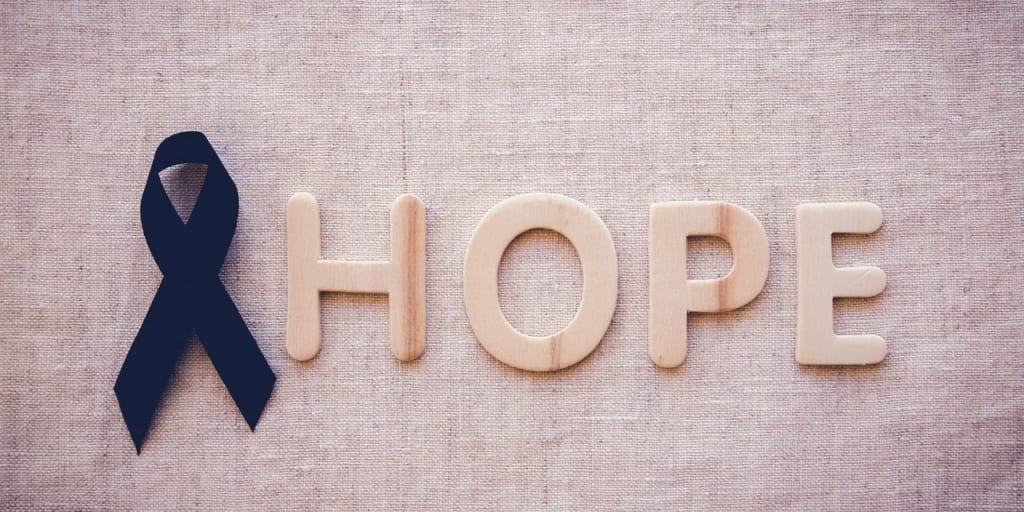The Importance of Skin Cancer Awareness
"Skin cancer does not discriminate. Knowing your risk may save your life" - Dr. James Goydos, physician, surgical oncologist, expert in melanoma and soft tissue tumors

This article was previously published on Dr. James Goydos' website May 20201
Skin cancer is the most common form of cancer diagnosed in humans. Cases of skin cancer have been on the rise, likely due to a combination of factors. Improvements in access to cancer screening, global pollution and heightened UV exposure, longevity, and more variables may help to explain the increase in skin cancer.
Although understanding the underlying causes of melanoma and other skin cancers is an important venture in its own right, helping to raise awareness is equally important.
Skin Cancer Can Impact Anyone
Skin cancer does not discriminate. It can affect members of both biological sexes, regardless of age, race, culture, or creed. Different skin types may be more predisposed to developing one form of skin cancer than another, but skin cancers are something to which all humans are potentially vulnerable.
Both men and women can develop skin cancer, and age may make a difference regarding the propensity for specific types of cancer. Before the age of 50, for example, women are more commonly diagnosed with melanoma, but this trend reverses with more men diagnosed with melanoma after 50.
However, skin cancer is not one which only afflicts the adult population. It can strike at any age. This is one of the many reasons why healthy skin habits are important to establish when you are young. Having just a handful of severe sunburns can put one at an increased risk of developing melanoma, one of the most insidious forms of skin cancer
“Skin cancer is the most common type of cancer affecting humans and is one of the most preventable types of cancer through education and public awareness.” — James Goydos, M.D., F.A.C.S.
Learning How To Spot Skin Cancer
Raising awareness of skin cancer and providing education regarding how to protect your skin is essential. Equipping yourself with the tools to not only safeguard your skin, but also those to recognize potentially problematic skin lesion may save your life.
Getting regular skin checks should be an important part of anyone’s healthcare regimen. Checking your skin at least once a month can help increase the chances of early detection of skin cancer, and the information you gather may help your doctor to understand any changes in your skin which may merit more attention.
Self-skin checks should always be made in addition to — not as a replacement for — regular check-ins with a medical professional. Learning the ABCDE’s of melanoma is a great way to take your skin health into your own hands. The ABCDE’s serve as a reminder for what to look out for when it comes to melanoma.
Be on the lookout for spots on the skin that are asymmetrical, and moles which have an irregular border. Spots which have different colors in different areas can be a red flag, as well as any spots which are larger in diameter than a pea or pencil eraser. Anything that is evolving or changing is also worth attending to. Monitor for anything new, changing, or unusual, and address is at your next doctor’s appointment.
Getting screened for cancer can improve early detection
Being your own healthcare advocate is important, and the pandemic has highlighted this. The coronavirus has put a spotlight on public health, leading many to be more concerned about how to manage their medical issues. However, although many are more aware of their health, this hasn’t translated to more doctor’s visits. The opposite has been true for cancer screening during the coronavirus. Rates of screening have actually decreased, though one can only hope that this pattern reverses soon.
Although melanoma and skin cancer awareness month is coming to a close, its message should be carried with us daily. Skin cancer does not need to be a death sentence.
About Dr. James Goydos
Dr. James Goydos is an expert in melanoma research and specialist in surgical oncology with an M.D. from Rutgers University. With over 20 years of experience as a Professor, Surgeon, and Clinical Trial Lead, he is a leading expert in his field.
Subscribe to James Goydos’ newsletter. Follow me on Good Men Project, Newsbreak, Hubpages, Loop, Medium, Instagram, Facebook,YouTube, Medika Life, Doximity, Github, Kaggle, Vocal, LinkedIn
About the Creator
James Goydos, MD
James Goydos MD - Doctor, surgeon & expert on skin cancer. M.D. from Rutgers. Experience as a Professor of Surgery, Surgical Oncologist, & clinical trial leader. Writing on cancer, detction with camera / computer vision and healthcare.






Comments
There are no comments for this story
Be the first to respond and start the conversation.